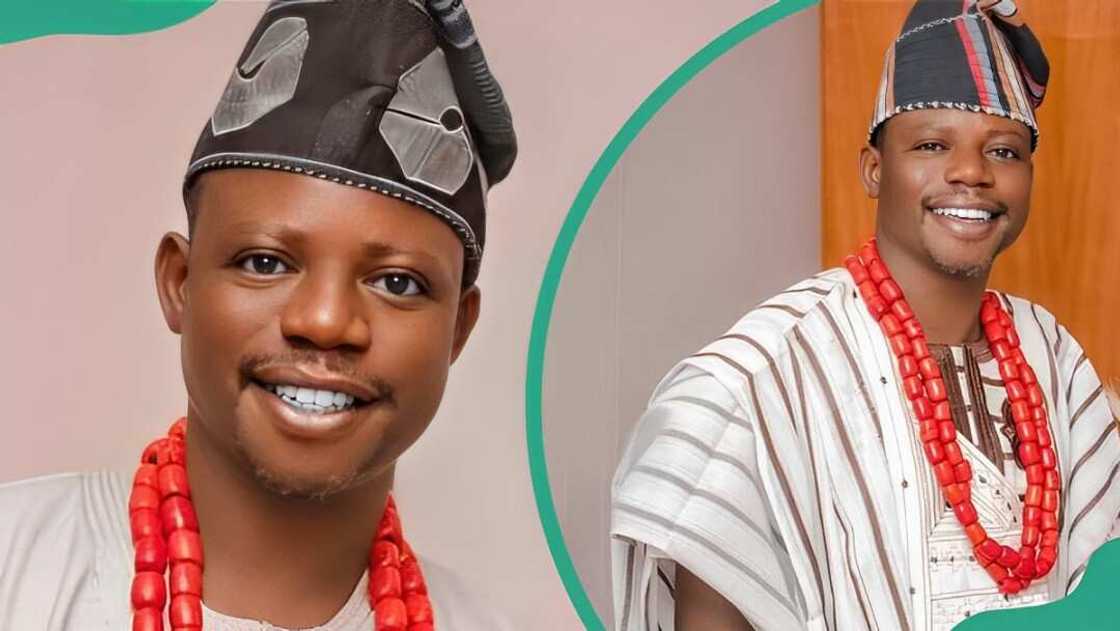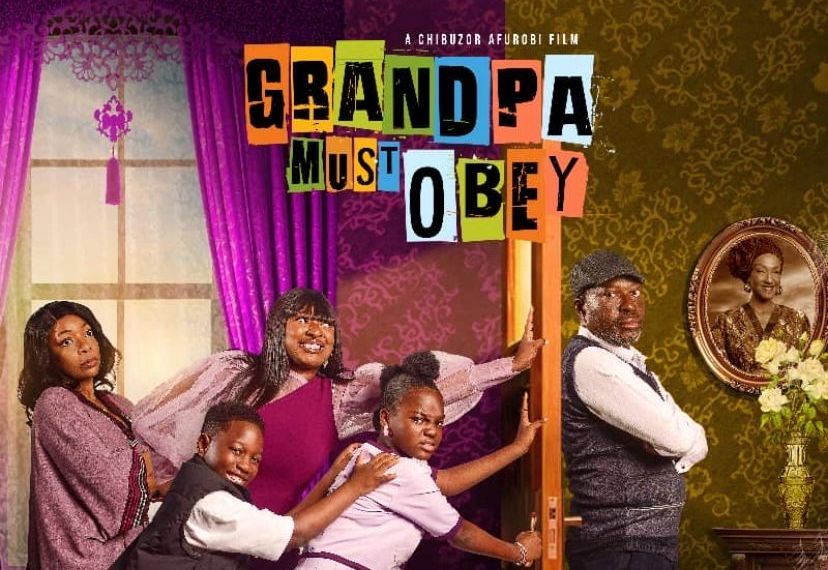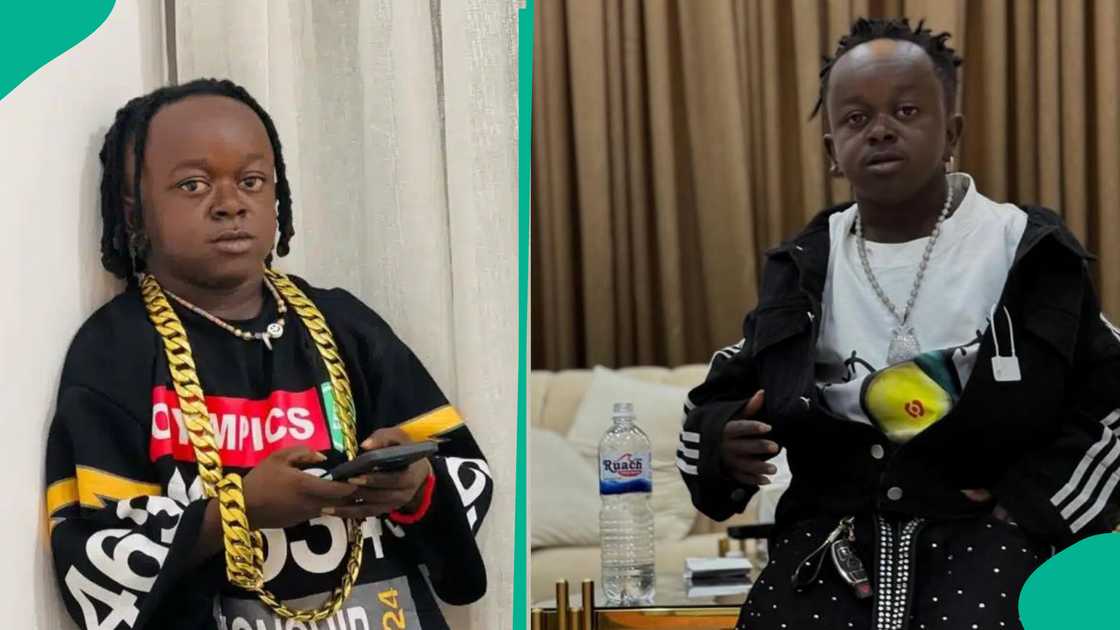Nigerian social media has erupted into debate following a provocative proposal from popular Yoruba actor and comedian, Okele, who has thrown a new, unconventional idea into the ongoing conversation about Nigeria’s future leadership. His comments have sparked discussions not just among his fans, but across the country and beyond, as many ponder whether he’s jesting or raising a serious point about national governance challenges.
In a video that quickly gained traction on various platforms, Okele suggested a radical rethink of Nigeria’s leadership structure. According to his proposal, Nigeria should eliminate its current periodic election process and instead invite former presidents from other successful countries to take over leadership roles in the nation.
Drawing a parallel to international football clubs that hire proven coaches from across the globe, Okele argued that a similar strategy might hold the key to Nigeria’s developmental strides, referring specifically to its issues as “NOWAHALAZONE.” This creative, if controversial, analogy places Nigeria’s political predicament side by side with world football’s relentless pursuit of success by hiring the best hands, regardless of nationality.
Okele stated:
“You know in football, coaches move from one club to another. So why can’t Nigeria adopt that method? If we have a president who isn’t performing, we can sack him and bring in another one who has proven himself elsewhere.”
He further remarked that Nigerian citizens often voice their disappointment and frustration after each electoral cycle. In his view, this endless cycle of complaints could be broken by “importing” former leaders with proven track records from other countries, rather than continuing to select from the current pool of politicians at home.
The video itself, which has divided opinion nationwide, can be viewed here:
Debates trail Okele’s solution to Nigeria’s problems
As expected, Okele’s comments energized conversations online, with reactions flooding in from Nigerians at home and in the diaspora. Many were quick to share their perspectives, with responses ranging from laughter and curiosity to pointed criticism and thoughtful allegories about the nation’s political psyche. The reactions highlighted the deep frustrations ordinary Nigerians feel—but also the resilience of the country’s humorous spirit.
Here’s a selection of responses compiled from social media:
@dapzinfash:
“Make we sign Barack Obama 8 years contract no release clause”
@DolapoToyyib:
“Thank God Okele didn’t disappoint me because I don’t expect something makes sense from him from the beginning of the video”
@x_rare1:
“Nigerians still doesn’t know the power they hold, you elected them in those public offices and can remove them anytime any day you want if they don’t do well. Why are you all always looking for a messiah when the power lies with you.”
@Johnnywest98:
“How can we sack an outsider after making a deal with him to be in power when we citizens can’t sack our inside people we made a deal with to be in power, does that not tell you that it is not the citizens’ own the country? The citizens are not valued in the eyes of our own people we elected into power, how can we get valued in the eyes of outsiders lol”
@Zmartbwai:
“Did this man smoked before coming up with this, it’s hilarious and at the same time worth trying but that’ll be like going back to where we once left when we were set free in 1960”

Source: Instagram
Taking Stock: Governance, Frustration, and Search for Solutions
Nigeria is no stranger to heated debates about governance and the way forward. Elections remain fiercely contested events, often followed by disappointment when newly elected leaders fall short of public expectations. According to a 2023 report from Afrobarometer, more than half of Nigerians expressed little or no trust in their leaders, echoing the sentiments behind Okele’s satirical commentary.
While the comedian’s proposal to “import” leaders may be tongue-in-cheek, the underlying frustration reflects the reality many West Africans contend with: persistent economic hardship, insecurity, and a lack of effective public service delivery. Some Nigerian political scientists, including Dr. Tayo Adigun of the University of Lagos, have noted that “disillusionment with periodic elections is at an all-time high, particularly among youth who make up the bulk of the electorate.”
Comparisons can be found in history. Countries like Singapore and Rwanda achieved transformation under the watch of visionary leaders, though their models were homegrown and sometimes controversial. No nation has, to date, sought a non-citizen as head of state. However, international organizations such as the IMF or World Bank frequently send experts to serve temporarily as technical advisers, and several African countries have hired foreign consultants to spearhead key reforms—in finance, education, and health. Although not the same as political leadership, it highlights some willingness to borrow expertise.
Nigeria already appoints internationals for certain roles: foreign football coaches lead the Super Eagles; global business leaders sometimes run Nigerian companies. The leap to having a foreign president, however, would require constitutional amendments, public consensus, and international legal backing—a combination few experts see as feasible. “It’s funny, but it’s a wake-up call,” said Abuja-based governance analyst Chinedu Okoro, “about thinking outside the box to solve our political impasse.”
Public Reactions and the Power of Satire
Satirical takes like Okele’s have become a staple of Nigerian news and political commentary, reflecting a blend of frustration and creativity. Viral moments like these offer Nigerians—and Africans—a space to vent, laugh, and reflect on pressing issues. Social media has further amplified such voices, turning memes and jokes into national debates overnight.
Some argue that more serious reforms are still needed. According to Lagos-based policy advocate Bukola Adeshina, “The point shouldn’t be about bringing foreigners, but about strengthening local leadership, civic education, and public accountability.” Others say that the very idea exposes the deep trust deficit between leaders and the populace, underscoring the importance of truly democratic reforms beyond the electoral process.
From Online Banter to National Reflection
Okele’s video is just one example of how Nigerians are using satire to voice their hopes and fears for the country’s future. The reactions—ranging from playful banter to sober critique—demonstrate a society deeply engaged with its own realities. For tuned-in observers across West Africa and the diaspora, such discussions are critical reminders of the need for solutions that are rooted in the experiences of ordinary people.
Nollywood in Political Conversation: Olaiya Igwe’s Public Apology
In a related development that illustrates how Nigerian entertainment figures often become entangled in political discourse, Nollywood actor Olaiya Igwe recently trended on social media. His appearance followed the release of an apology video addressing his actions during the 2023 general election campaign.
Olaiya Igwe made headlines previously after he was seen unclad by the seaside campaigning for Bola Tinubu, who would later become Nigeria’s president. In his now-deleted video, the actor—known for “Ololade Mr Money”—explained his actions were driven by a spiritual revelation he claimed to have received about Tinubu’s candidacy. His public apology, made in 2024, offered insight into the sometimes turbulent intersection of celebrity, politics, and personal conviction in Nigeria.
Such incidents reflect the ever-blurring line between Nollywood, national debates, and societal change—showing just how significant African celebrities have become in shaping political conversations, whether as advocates, critics, or, at times, unwitting icons of viral moments.










